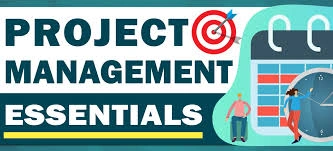Course Overview:
This 5-day intensive course provides participants with a comprehensive understanding of Monitoring and Evaluation (M&E) practices within the context of project management. Participants will learn how to design, implement, and manage effective M&E systems that can track project progress, measure impact, and ensure accountability. The course covers the full M&E lifecycle, from setting baselines and indicators to conducting evaluations and utilizing M&E data for decision-making. Real-world case studies and practical exercises will allow participants to apply learned concepts to their own projects.
Duration
5 Days
Who Should Attend
- Project managers and coordinators
- M&E specialists and officers
- Program staff involved in project planning, implementation, and reporting
- Development practitioners and consultants
- NGO and civil society professionals
- Donor agency representatives
- Government officials working on project management and evaluation
Course Objectives
By the end of this course, participants will be able to:
- Understand the fundamental principles of Monitoring and Evaluation in project management.
- Develop M&E frameworks, including logical frameworks (logframes) and theory of change.
- Design indicators for tracking project outputs, outcomes, and impacts.
- Conduct data collection, analysis, and reporting for M&E activities.
- Apply tools and techniques for performance measurement and impact evaluation.
- Integrate M&E processes into project life cycles for continuous learning and improvement.
- Utilize M&E findings for effective decision-making and stakeholder engagement.
Course Outline:
Module 1: Introduction to Monitoring and Evaluation
- Overview of M&E in project management
- Key concepts: Monitoring vs Evaluation
- M&E’s role in project success
- Establishing M&E systems in different sectors
- Real-world case studies
Module 2: Designing M&E Frameworks
- Developing logical frameworks (logframes)
- Theory of change and impact pathways
- Setting clear objectives, outputs, outcomes, and impacts
- Formulating SMART indicators
- Baseline surveys and target setting
Module 3: Data Collection and Analysis in M&E
- Quantitative vs qualitative data
- Data collection methods: Surveys, interviews, focus groups
- Sampling techniques and tools for M&E data collection
- Managing and analyzing M&E data
- Data quality and ethics in data collection
Module 4: Performance Measurement and Evaluation Techniques
- Mid-term and final project evaluations
- Measuring project performance and impact
- Cost-effectiveness and efficiency analysis
- Tools for participatory evaluation
- Writing and presenting M&E reports
Module 5: Utilizing M&E Findings for Decision-Making
- Integrating M&E in project cycles
- Using M&E results for strategic decision-making
- Engaging stakeholders with M&E findings
- Adaptive management and continuous learning
- Developing an action plan for M&E system improvement
Customized Training
This training can be tailored to your institution needs and delivered at a location of your choice upon request.
Requirements
Participants need to be proficient in English.
Training Fee
The fee covers tuition, training materials, refreshments, lunch, and study visits. Participants are responsible for their own travel, visa, insurance, and personal expenses.
Certification
A certificate from Ideal Sense & Workplace Solutions is awarded upon successful completion.
Accommodation
Accommodation can be arranged upon request. Contact via email for reservations.
Payment
Payment should be made before the training starts, with proof of payment sent to outreach@idealsense.org.
For further inquiries, please contact us on details below:






